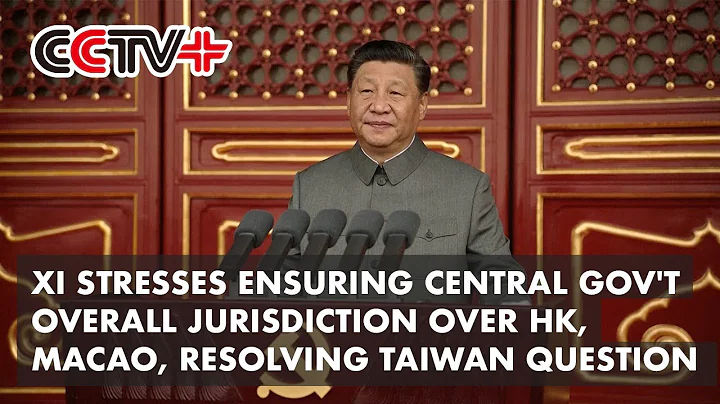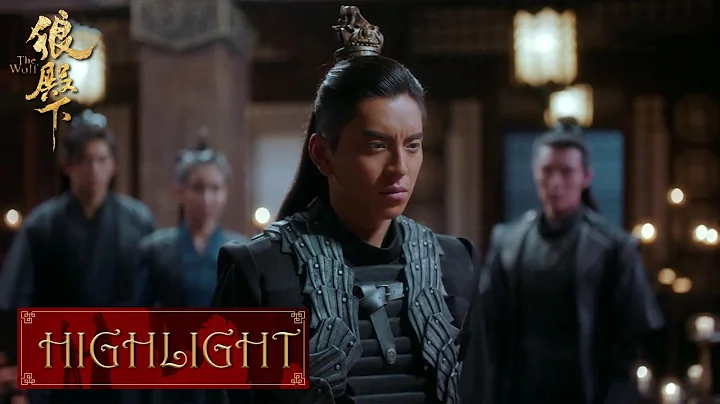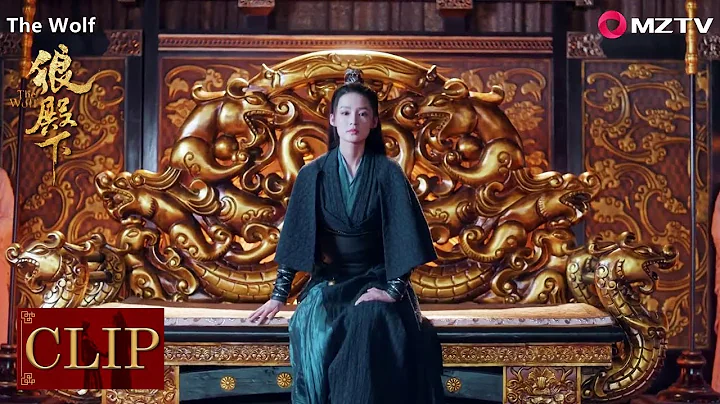Important Discussion
| On June 26, 1935, the Political Bureau of the CPC Central Committee held a meeting at Lianghekou, Maogong, Sichuan to discuss the strategic policy issues after the red first and red fourth front armies joined forces. Zhou Enlai made a report at the meeting and proposed the strategic policy of using mobile warfare to quickly attack the southern part of Songpan Hu Zong and move north to create the Sichuan-Shaanxi-Gansu base area. In his speech, Zhang Guotao reluctantly agreed with the central government's policy of advancing northward, and also raised the issue of fighting "south" and "toward Chengdu". Mao Zedong spoke in agreement with Zhou Enlai's report and put forward five opinions: (1) The establishment of base areas by the Chinese Red Army in Sichuan, Shaanxi and Gansu can put the movement to create Soviet areas on a more solid basis. This is the way forward. (2) The nature of war is not a decisive battle of defense or running, but an attack. Base areas were developed by relying on offense. (3) We should see where , Chiang Kai-shek, and control our lives, and we should break them first. I need to be highly mobile and choose a route to the north to seize the opportunity first. (4) Concentrate your forces on the main offensive, such as attacking Songpan. Hu ZongnanIf you fight with me in field battles, I have more than twenty regiments, which is enough; if you don't fight with me in field battles and defend the fortress, you must break the garrison and contain the enemy. Now it is time to quickly break through the enemy and move forward to seize Songpan. Decide today and take action tomorrow. The population here is sparse and the weather is cold and food and clothing are difficult. We should strive to break through in June and reach the determined area via Songpan. (5) Instruct the Standing Committee and the Central Military Commission to resolve the issue of unified command. On the 28th, in accordance with the spirit of the Lianghekou Conference, the Political Bureau of the Central Committee discussed and adopted the "Decision on the Strategic Guidelines after the Reunion of the First and Fourth Front Armies."
On June 26 and 27, 1940
, the Political Bureau of the CPC Central Committee held consecutive meetings to discuss current issues. Mao Zedong pointed out in his speech: The surrender of France and the defeat of Britain caused a series of changes in the world. On the one hand, Germany, Italy, and Japan expanded the war, and on the other hand, the United States, Britain, and the remnants of France had to fight against Germany, Italy, and Japan. Therefore, China is currently in a new environment, mainly: the Eastern Munich danger launched by Britain, the United States, and France no longer exists, or at least it can be said to have been greatly reduced. The main source of the danger of China's surrender has moved from Britain, the United States, and France to Japan, Germany, and Italy, and Japan is the most important external force instigating China's surrender. The development of the power of the Communist Party was the most important domestic factor that forced the Kuomintang subjects to "neither surrender nor suppress the Communist Party." The overall situation is favorable for the war of resistance. Although even if it can get better, the current situation will definitely still be a drag on. Ren Bishi pointed out: Due to the increase in conflicts between Japan and the United States in the Pacific, the United States will support China's war of resistance. Our party's policy is to support the long-term war of resistance. This is the overall situation.
| June 26, 2015
| The Political Bureau of the CPC Central Committee conducted the 24th collective study session on strengthening the construction of laws and regulations against corruption and promoting integrity. When presiding over the study, Xi Jinping emphasized that our party has been in power for a long time and has huge political advantages but also faces severe challenges. We must rely on the strength of party organizations at all levels and the people to continuously strengthen and improve party building, management, and supervision. Eradicating the soil where bad styles and corruption breed and spread fundamentally depends on laws and regulations. It is necessary to strengthen the construction of laws and regulations on anti-corruption and upholding integrity, and implement the construction of laws and regulations into all areas of anti-corruption and upholding integrity, and implement them into all aspects of restriction and supervision of power, give full play to the incentive and restraint role of laws and regulations, and promote the formation of an effective mechanism that dares not, cannot, or does not want to corrupt. .
He pointed out that the construction of anti-corruption laws and regulations is highly systematic and must adhere to problem orientation, highlight key points, and fully embody scientificity, pertinence, and operability. We must adhere to macro thinking and overall planning. We must not only pay attention to embodying the basic principles and spirit of the Party Constitution and the Constitution, comply with national laws and regulations, but also connect with other aspects of laws and regulations to enhance the overall effect of laws and regulations. It is necessary to have a complete system, well-connected systems, systematic governance, and orderly governance. The cage of anti-corruption laws and regulations must be tightly packed tightly to achieve front-to-back connection, left-to-right linkage, top-to-bottom support, and system integration. It must be pragmatic and effective, simple and easy to implement, and the laws and regulations must be pragmatic and effective.Responsibilities must be clear, rewards and punishments must be strict, and the subjects of responsibility must be clarified to ensure that they are enforceable, supervised, inspectable, and accountable.
He emphasized that the vitality of laws and regulations lies in execution. The key to implementing laws and regulations lies in strict management. To strengthen the construction of anti-corruption laws and regulations, we must focus on formulating and improving them on one hand and implementing them on the other. It is necessary to strengthen the awareness of laws and regulations, carry out publicity and education on laws and regulations throughout the party, guide party members and cadres to firmly establish awareness of the rule of law, system awareness, and discipline awareness, create a good atmosphere of respecting the system, abiding by the system, and defending the system. Equality, no privileges in complying with laws and regulations, and no exceptions in enforcing laws and regulations. It is necessary to intensify implementation efforts, make iron rules more effective, make bans more powerful, and ensure that various laws and regulations take root. It is necessary to strengthen supervision and inspection, implement the supervision system, use supervision to convey pressure, and use pressure to promote implementation. Those who violate laws and disciplines, violate laws and regulations, step on "red lines", cross the "bottom line", or enter "minefields" must be resolutely and seriously investigated. We must not break the rules because of our great power, do not tolerate the problem because it is small, and do not treat those who violate the rules because they are numerous. Let it be laissez-faire, leaving no "secret doors" or opening "skylights", and resolutely prevent the "broken window effect".
He pointed out that it is necessary to improve the accountability mechanism , insist on asking those who have responsibilities and strict accountability, and organically combine supervision and inspection, target assessment, and accountability to form a strong driving force for the implementation of laws and regulations. The content, objects, matters, subjects, procedures and methods of accountability must be institutionalized and programmed. The implementation of laws and regulations must be included in the inspection and assessment of the responsibility system for building party style and clean government and the performance and integrity reports of party and government leading cadres. By strictly investigating the main responsibilities, supervision responsibilities, and leadership responsibilities, the power of laws and regulations can be used in the anti-corruption drive. be fully released. Discipline inspection agencies must intensify supervision and inspection. For those who fail to comply with orders or prohibitions, they must not only seriously investigate and deal with those directly responsible, but also seriously hold relevant leaders accountable.
Party History Review
1945
From April 25 to June 26, the United Nations Constitutional Convention was held in San Francisco. On June 26, the United Nations Charter adopted and . The Chinese delegation, including CCP representative Dong Biwu, attended the meeting and signed the charter.
1946
On June 26, the Kuomintang reactionaries brazenly tore up the armistice agreement and the CPPCC Agreement, besieged the Central Plains Liberated Areas, and launched an all-out attack on various liberated areas. A new national civil war broke out.
1965
On June 26, when talking to medical staff, Mao Zedong proposed: Put the focus of medical and health work in rural areas. On September 21, the Central Committee of the Communist Party of China approved the "Report on Focusing Health Work on Rural Areas" by the Party Committee of the Ministry of Health. By the end of the year, the national urban and rural medical and health network will be basically formed, and a considerable number of rural areas will implement the cooperative medical system.
1991
On June 26, the State Council issued the "Decision on the Reform of the Pension Insurance System for Enterprise Employees." On July 16, 1997, the State Council issued the "Decision on Establishing a Unified Basic Pension Insurance System for Enterprise Employees." On December 3, 2005, the State Council issued the "Decision on Improving the Basic Pension Insurance System for Enterprise Employees".
| 2014
On June 26, when Xi Jinping listened to the report on inspections at the meeting of the Standing Committee of the Political Bureau of the Central Committee of the Communist Party of China, he pointed out that inspections, as a strategic institutional arrangement for intra-party supervision, are not a stop-gap measure. We must make good use of inspections as an anti-corruption "utility". sword".
| 2015
| On June 26, Xi Jinping pointed out in his speech at the 24th collective study session of the Political Bureau of the 18th CPC Central Committee that eradicating the soil where bad styles and corruption breed and spread fundamentally depends on laws and regulations. The construction of laws and regulations must be integrated into all areas of anti-corruption and integrity, and implemented into all aspects of restricting and supervising power, and promoting the formation of an effective mechanism that dares not, cannot, or does not want to corrupt.
2018
On June 26, the Central Committee of the Communist Party of China and the State Council issued the "Strategic Plan for Rural Revitalization (2018-2022)".
Historical moment

On June 26, 1935, the Political Bureau of the CPC Central Committee held a meeting at the mouth of Maogong Lianghe, Sichuan. The meeting decided that the Red Army should go north to establish the Sichuan-Shaanxi-Gansu base area. The picture shows the mouth of two rivers.
[A Hundred Years of Party History·Read Every Day] Executive Editor: Lu Jia Reviewer: Guo Weiwei Instructor: Ban Yongjie

A Hundred Years of Party History·Read Every Day
Source: Central Party History and Documentation Research Institute website, Communist Party Member Network














![[MULTI SUB]【完整版】她為保護兒子,失去所有时,被總裁倒追,開啟逆襲之路!!|《醜妻的逆襲》#短劇#逆襲#最新熱門短劇推薦 - DayDayNews](https://i.ytimg.com/vi/HLeL3GtbRwo/hq720.jpg?sqp=-oaymwEcCNAFEJQDSFXyq4qpAw4IARUAAIhCGAFwAcABBg==&rs=AOn4CLCdFGR6-iRgnazotiZPmhN267F4WA)


![EP02 | Lu Shuangshuang's divorce ask fails, Mo Chengqian doubts a plot | [When We Meet Again 与君重逢时] - DayDayNews](https://i.ytimg.com/vi/u8DMW40qAAU/hq720.jpg?sqp=-oaymwEcCNAFEJQDSFXyq4qpAw4IARUAAIhCGAFwAcABBg==&rs=AOn4CLD2C_an3uj89R5U7BcBu4qI4F_oOQ)


![【FULL VERSION】[MULIT SUB]Republic of China love story《少帅与我有情缘》Lu Dandong's new drama! - DayDayNews](https://i.ytimg.com/vi/ZAVSark_Ils/hq720.jpg?sqp=-oaymwEcCNAFEJQDSFXyq4qpAw4IARUAAIhCGAFwAcABBg==&rs=AOn4CLBoG2IADd4-fAbJWGYUrrIiWtKhlA)
